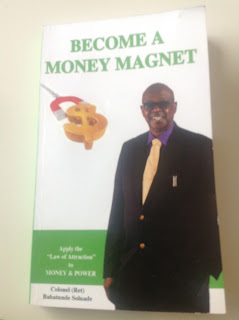An amazing book filled with so many lessons on Business, Life and Success. Every chapter amusing cartoon illustrations that were funny, inspiring and thought-provoking.Excerpt below of one chapter on the Power of Speaking
Speeches-Ten Rules to Utilize
Over the span of forty years, I have give a few hundred
speeches. Here are some key rules I’ve acquired:
1st Be brief:
People attention span is limited. Nobody
ever complained about a speech being to short! Tell your audience right up front how long the
speech is going to run. This signals how long they’ll have to pay attention.
2nd Try to communicate on main
idea:
A common mistake is trying to pack into a
speech four or five ideas. People are likely to remember only one idea, theme,
or concept.
In a lecture to students, the same
principles apply, Leave a lot of time
for questions. Use audio-visual that are
funny and attention-getting.
3rd Create a surprise:
People love to be surprise. As I got older, I always used the concept of
surprise. Example are:
A)Having your entrance and exit marked by
exciting folk songs or music;
B) Saying
something like, “this is a serious speech-above all there will be no
clowning around.” Then have twelve clowns enter the room, make noise, handing
out cards, and leaving in ninety
seconds;
C) instead of clowns, have a group of
cheerleaders burst in and lead in a cheer for an honoured guest.
4th Use Humour:
Collect jokes books and select three or four good one-liners or zingers.
Comedy is very hard to do well. Test your material on several people in advance. Personalize jokes by
inserting the names of prominent people
in the audience into the comedy material. This creates a sense of participation
and identification by the audience.
5th Slow it down:
Talk slowly and mark lots of points to
pause. Give the audience time to comprehend and assimilate your message.
There’s nothing worse than a speaker who rushes through a script he reads.
6th Use cue cards and look up of often:
Don’t appear to read you material. Make
protracted eye contact with your audience. Talk with them, don’t read to them.
7th Self-praise is no honour:
Get a good two-minute lead-in from someone
who tells your audience why you’re very important and why they should listen to
you.
8th Never speak before the main course in a
dinner speech:
Don’t get
between people and their food. (The same
principle applies to dogs.)
9th Reuse good material:
Write a good speech then keep finding new
audiences on which to utilize all or parts of it.
10th Use positive body language:
Smile, and use your hands to make emphasize
points. Get out from behind the podium if possible.






















